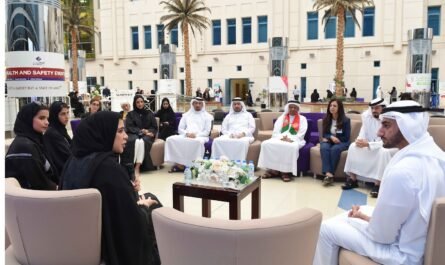
WordCamp USA concluded recently with a keynote address from Matt Mullenweg, the co-founder of WordPress.org and CEO of Automattic, that has since ignited a considerable backlash from the WordPress community and beyond. While the event typically fosters a spirit of collaboration and community, Mullenweg’s speech diverged sharply from this norm, culminating in pointed criticism of a prominent managed WordPress web host, WP Engine. This controversial moment not only overshadowed the conference’s intended celebrations but also drew significant ire across social media platforms, with “WordPress” trending at the top of X (formerly Twitter) in response to the uproar.
The WordPress community, founded on principles of open-source collaboration and collective empowerment, has thrived for years, enabling countless individuals and businesses to create and manage online content. WordCamp events are designed to be uplifting, encouraging networking and idea sharing among users from all backgrounds. However, this year’s closing keynote took an unexpected turn, as Mullenweg expressed dissatisfaction with the contributions of certain companies to the ecosystem, notably singling out WP Engine.
Leading up to the keynote, Mullenweg had hinted at the contentious tone of his message in a blog post released on the conference’s first day. While he initially lauded the community’s spirit and the value of collaboration, his narrative quickly turned critical. He remarked on the importance of companies giving back to the open-source initiative, specifically through the Five for the Future program, which encourages businesses to allocate 5% of their resources toward the development of the WordPress platform.
Mullenweg’s remarks centered on the perceived shortcomings of WP Engine in this regard. By publicly naming and shaming the company, he disrupted the usually positive atmosphere associated with WordCamp. Attendees and online observers noted a stark contrast between the collaborative ethos of WordPress and Mullenweg’s aggressive stance. The fallout was palpable, with many members of the community expressing discontent on various platforms.
Critics argued that Mullenweg’s approach undermined the core values of WordPress, which emphasize inclusivity and cooperation over confrontation. This sentiment was echoed in numerous social media posts, where users expressed frustration not only with the critique itself but also with the manner in which it was delivered. The backlash illustrates the delicate balance that leaders within the WordPress community must navigate, particularly in a forum designed to uplift and inspire rather than alienate.
The incident reflects a broader tension within the open-source community regarding the responsibilities of corporate participants. While many companies contribute positively to the ecosystem, there is ongoing debate about what constitutes an acceptable level of support. Mullenweg’s comments reignited these discussions, prompting many to evaluate their perceptions of corporate engagement in the open-source space.
The aggressive tone of Mullenweg’s keynote and subsequent blog post seemed to strike a nerve among attendees. Those expecting a celebration of the community’s achievements were met with a lecture on corporate responsibility that some perceived as uncharacteristically divisive. The fallout from his remarks prompted many to question whether Mullenweg’s leadership style aligns with the values he espouses for the WordPress community.
Reactions to the speech also highlight the ways in which social media can amplify dissent within communities. With many users taking to X to voice their opinions, the criticism escalated rapidly, transforming Mullenweg’s comments from a singular issue into a broader topic of discussion about leadership, accountability, and the future of WordPress. This incident has underscored the need for careful communication from leaders in the tech space, particularly in environments that thrive on collective goodwill.
While the goal of advocating for increased contributions to open-source projects is undeniably important, the methodology employed by Mullenweg has prompted discussions about the effectiveness of such confrontational tactics. Some community members argue that a more diplomatic approach might yield better results, fostering an atmosphere where companies feel encouraged rather than chastised to contribute.
The consequences of Mullenweg’s remarks may extend beyond social media backlash, potentially influencing the relationship between Automattic and other corporate players in the WordPress ecosystem. Companies like WP Engine may reassess their participation in WordPress initiatives, weighing the risks of public scrutiny against the benefits of collaboration. The fallout serves as a reminder of the complex dynamics at play within open-source communities, where the line between criticism and constructive feedback can often blur.
As discussions continue, many in the WordPress community are calling for a return to foundational principles that prioritize cooperation over contention. Mullenweg’s actions have sparked a necessary dialogue about corporate responsibility in the open-source realm, yet the method of addressing these issues remains under scrutiny. The conference experience, meant to foster unity, was disrupted by a controversial message that left many attendees feeling unsettled.
Moving forward, the WordPress community may need to navigate these tensions carefully, ensuring that discussions around contributions remain constructive rather than adversarial. While advocating for greater corporate participation is essential, the approach taken must align with the values that have made WordPress successful over the years. The road ahead will likely involve recalibrating how leaders like Mullenweg communicate their expectations, ensuring that messages resonate positively within the community.
The backlash against Mullenweg’s keynote underscores a crucial lesson in community leadership: the importance of tone and approach. While the intent to encourage greater corporate responsibility is commendable, the manner in which this is communicated can significantly impact community dynamics. The WordPress community thrives on collaboration, and as it moves forward, fostering an environment where companies feel empowered to contribute positively will be essential.




